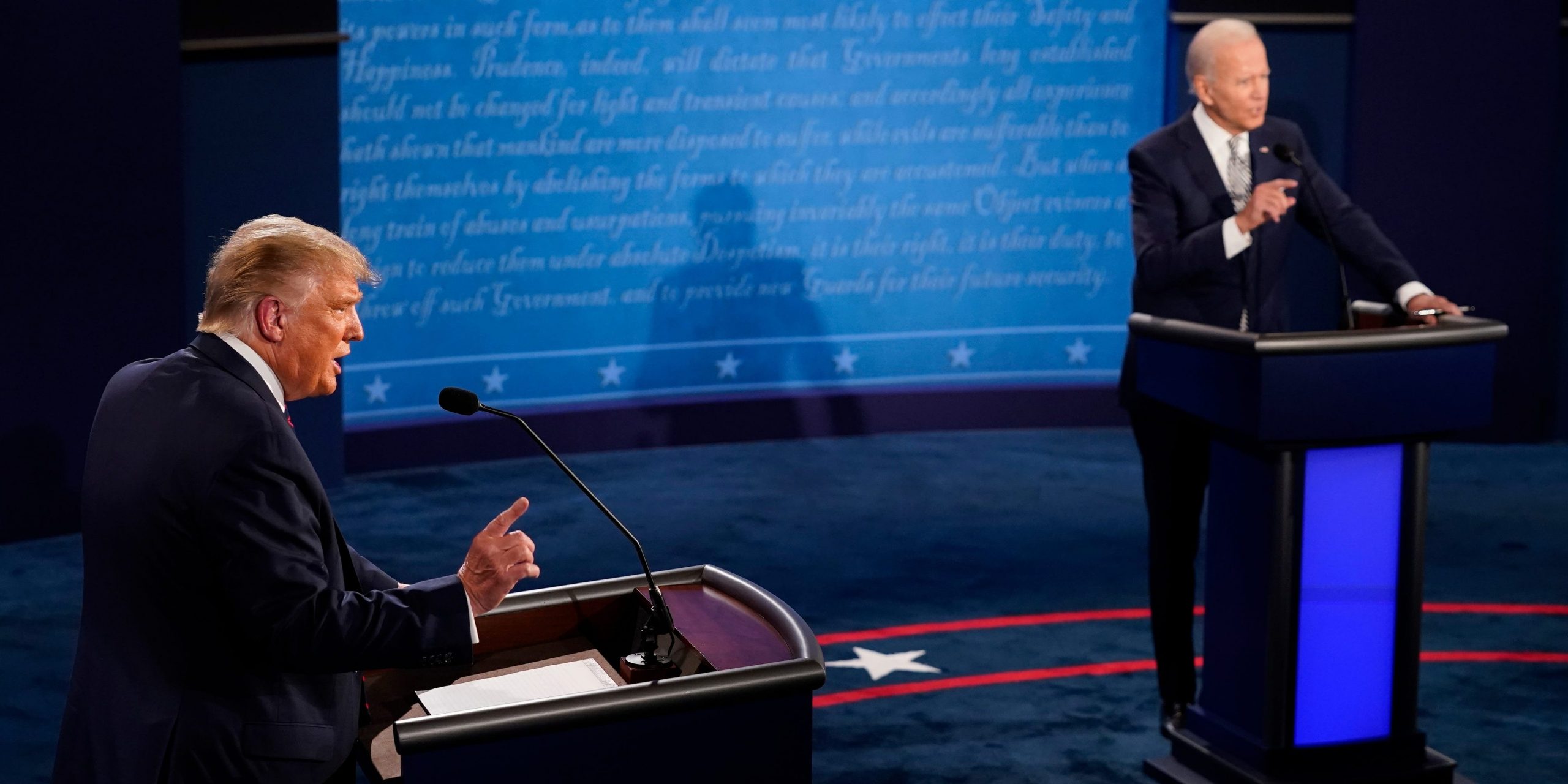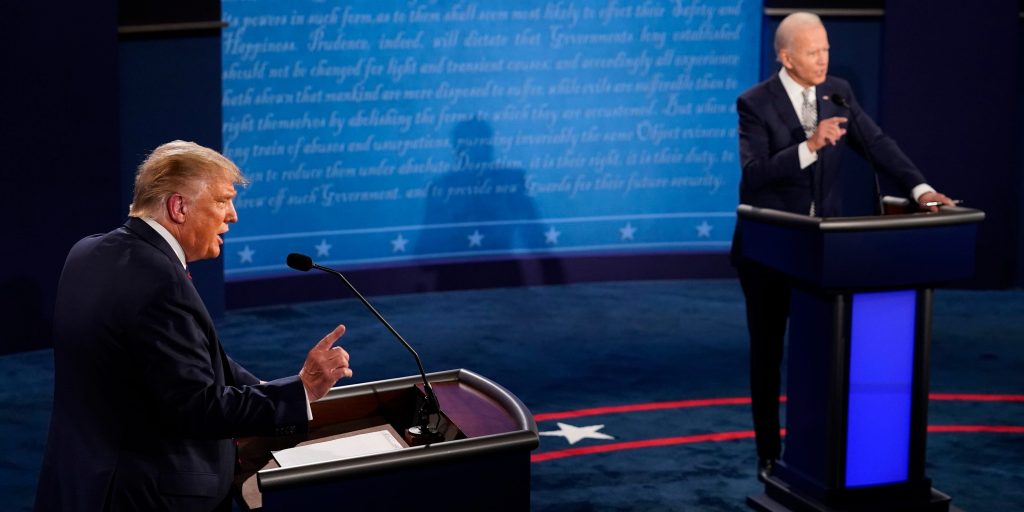
Morry Gash-Pool/Getty Images
- After a full term of polling stability for Donald Trump, President Biden is already in a slump.
- Trump's consistent floor in his approval rating was due to factors Biden doesn't share.
- Because Biden doesn't have a base like Trump's, outside events make him much more vulnerable.
- See more stories on Insider's business page.
President Joe Biden's approval rating is already on the ropes amid the troop withdrawal from Afghanistan.
Beyond dipping below 50% for the first time in his presidency, Biden's falling approval rating is part a broader trend.
A new poll from Suffolk University and USA Today shows the president confronting variables in his base of support that his predecessor did not have to deal with.
While the 41% approval rating in that Suffolk poll may cause some alarm among Democrats, a separate issue is how precipitously this happened to Biden compared to former President Donald Trump.
Trump's polling was remarkably consistent over the course of his term, never going much higher or lower than the low 40 percentage point range. This led to questions among political scientists and pollsters over whether this was the new normal in our polarized and hyper-partisan political environment.
The Biden floor
It's still early in Biden's term, but his base of support is already challenging the theory behind the new normal case.
Aside from Afghanistan, Biden's handling of the COVID-19 pandemic has also suffered in the polls, dropping from 66% approval to 54% on that issue between July and August in the Associated Press poll.
Much of Biden's slump is due to a loss of support among independent voters, many of whom began to fall off with questions centered on the pandemic. An NBC News tracking poll saw Biden lose almost 30 percentage points among independents when it came to his coronavirus response from April to August, down to 52% from a high of 81%.
This brings into question who makes up the bulk of a president's support.
For Trump, independents were never as big of a factor as Republicans in his core approval rating in the low 40s. For Biden, his better approval ratings have largely depended on independents giving him a boost.
Democrats still largely approve of Biden's job performance, but he doesn't have the same solidity among the base that Trump did, particularly among white Evangelical Christians.
Without that kind of a bedrock, and because Biden started out pretty well among independents, exogenous events like the Delta variant and the Afghanistan troop withdrawal open him up to more fluctuations in his support compared to Trump.
Although Biden may have a lower floor than Trump, his fluctuation in approval has also shown he can have a higher ceiling.
At the outset of the pandemic, Trump enjoyed the shortest "rally 'round the flag" effect of any modern president, meaning that he never got the kind of boost presidents such as George W. Bush after 9/11 or John F. Kennedy during the Cuban Missile Crisis.
For now, Biden's dip says more about how he's in line with his predecessors in dealing with outside events and how big of an outlier Trump was, but not as much about he and his party's prospects in the 2022 midterms and 2024 general election.

